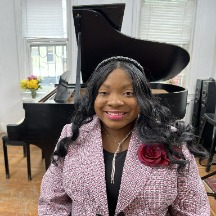Repairs and restoration work continue after a 2020 flood caused more than $500,000 in damage to the historic landmark building of the
Marian Anderson Museum & Historical Society. The Society’s building was the home of Marian Anderson, the iconic contralto singer who performed a wide-range of music, from opera to spirituals, from 1924-1965.
In spite of losing the use of their historic building and access to its incredible collection of artifacts belonging to the famous singer while undergoing years of repairs, the Marian Anderson Museum & Historical Society has continued its work for the last four years and is working toward an October 2024 re-opening for its building.
The Daughters of the American Revolution denied the singer the opportunity to perform in its famed Constitution Hall in 1939 due to her race. After DAR changed its policies, Anderson would later perform at Constitution Hall multiple times.
“It has been hard to continue our programs while the building is undergoing such a huge renovation and our collection is being restored. We keep going because we love this work and are inspired by the legacy of Marian Anderson,” said Jillian Patricia Pirtle, CEO of the National Marian Anderson Museum and Historical Society.
“Our Museum is small but mighty. We are really grateful for the support of the community, our sponsors, our historic preservation partners, our Marian Anderson Scholars – and the Daughters of the American Revolution (DAR),” said Pirtle.
The National Marian Anderson Museum Scholar Arts Program supports young classical, opera, theatrical, musical, and visual artists – and has maintained a busy program calendar. On June 2, 2024, the Museum will celebrate its spring season and continue to work toward re-opening by holding “Come Sunday: A Tribute Concert of Spirituals and Jazz” at The Tindley Temple at 3pm with tickets available for $30.
The DAR has donated $200,000 to assist the museum from 2022-2024. As part of the donations, the DAR displayed on loan in 2023 and early 2024 a beautiful cranberry red sequined gown that Anderson wore during her concerts in the 1930s.
“Marian Anderson’s life story will always be intertwined with the DAR and we cherish today our friendship with the Marian Anderson Historical Society & Museum,” said Pamela Wright, President General of the DAR. The DAR denied the singer the opportunity to perform in its famed Constitution Hall in 1939 due to her race, leading to her famous Easter Sunday concert on the steps of the Lincoln Memorial. After DAR changed its policies, Anderson would later perform at Constitution Hall multiple times, even launching her farewell tour from the venue.
“As an organization committed to celebrating our nation’s history and preserving it, our National Society is pleased to help the Marian Anderson Museum & Historical Society and support its efforts,” said Wright.
To heighten visibility for the Marian Anderson Museum & Historical Society restoration needs, the Museum is encouraging the public to share “What Marian Anderson Means to Me” on the Museum’s Facebook page in April and May. Suggested hashtags include:
#WhatMarianAndersonMeansToMe, #MarianAnderson, #TheGreatMarianAnderson
The month of April is notable in the life of Marian Anderson. She gave her famous Easter Sunday performance on the steps of the Lincoln Memorial on April 9, 1939. She performed her final concert at Carnegie Hall on April 19, 1965. And she died on April 8, 1993.
The Marian Anderson Museum & Historical Society continues to work to reopen its historic landmark, located at 762 South Martin Street in Philadelphia.
They are requesting donations to the organization which can also be made by calling 215-779-4219.







